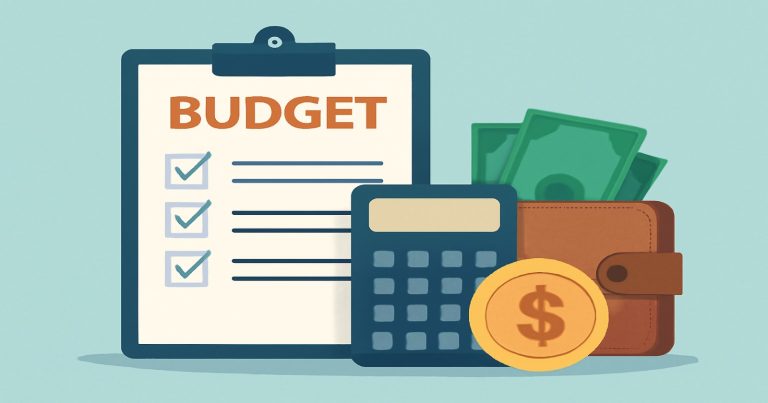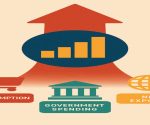A Budget is a financial plan that outlines expected income and expenditure for a specific period, typically a fiscal year. It serves as a tool for managing finances, both at the individual and government levels. By setting a budget, entities can track their financial goals, allocate resources efficiently, and ensure they do not overspend. In the case of governments, the Budget helps in deciding how much to allocate to various sectors such as health, education, and defense, ensuring the nation’s economic stability and growth.
What is a Budget?
A Budget is a statement that forecasts the anticipated revenues and expenditures for a given period. It can apply to a household, business, or government. The budget provides a structured framework for managing financial activities, ensuring that resources are allocated appropriately. In a government context, the Budget plays a crucial role in economic policy decisions, such as taxation, spending, and borrowing.
In simpler terms, the Budget represents a financial roadmap for managing resources to achieve specific goals. It is often used as a control mechanism to track spending, identify potential areas for cost-cutting, and plan for future financial needs. The concept of budgeting is an essential aspect of any organization or government as it promotes accountability, ensures financial discipline, and supports long-term financial planning.
Types of Budgets
There are different types of budgets depending on the context in which they are used:
- Personal Budget: This is a financial plan used by individuals or families to manage their income, savings, and expenditures.
- Business Budget: Used by companies to project revenues, expenses, and profits over a period of time.
- Government Budget: A detailed plan used by the government to allocate resources across various sectors and programs.
Each of these budgets plays a crucial role in maintaining financial discipline and ensuring that resources are used effectively.
Structure of a Government Budget
A government Budget is a comprehensive financial statement that is presented by the Finance Minister to the legislature, typically on an annual basis. The structure of a government Budget typically includes the following components:
1. Revenue Budget
The revenue budget outlines the expected income and expenditure that do not result in the creation of assets. It primarily focuses on the government’s income from taxes and other sources. The revenue budget consists of:
- Revenue receipts: Income earned through taxes, fees, and grants.
- Revenue expenditure: Expenditures on government services and welfare programs that do not lead to asset creation.
2. Capital Budget
The capital budget deals with the government’s long-term investments, including the creation of infrastructure, defense spending, and capital projects. This section focuses on:
- Capital receipts: Funds raised through loans, borrowings, and the sale of assets.
- Capital expenditure: Expenditures that result in the creation of fixed assets or infrastructure.
3. Deficit Financing
This is the shortfall between the total expenditure and total revenue. If a government’s expenditure exceeds its revenue, it borrows money to bridge the gap. The Budget addresses how this deficit will be financed, through borrowing or tapping into reserves.
4. Fiscal Deficit
The fiscal deficit measures the gap between the government’s total expenditure and its total revenue, excluding borrowings. It is an important indicator of the government’s financial health and is closely monitored by investors and credit rating agencies.
Importance of a Budget
The Budget holds great importance for both the government and its citizens.A budget is a fundamental financial tool that helps individuals, businesses, and governments plan, manage, and monitor their financial resources. It serves as a roadmap, outlining expected income and expenses over a specific period. For businesses, having a well-structured budget is crucial to achieving financial stability and long-term success. It helps allocate resources efficiently, control spending, and avoid overspending, ensuring that funds are used effectively to meet organizational goals. Here’s why:
1. Economic Planning and Stability
The Budget is a tool for managing the nation’s economy. It sets priorities for government spending, influences inflation rates, and helps in managing the country’s fiscal health. By balancing revenues and expenditures, the Budget helps ensure economic stability.
2. Allocating Resources Efficiently
The Budget is a tool for resource allocation. Governments use the Budget to allocate funds to various sectors, ensuring that priority areas such as health, education, and infrastructure are well-funded.
3. Promoting Transparency and Accountability
The Budget promotes financial transparency by making the allocation and usage of public funds public knowledge. This enhances government accountability, allowing citizens to track how taxes and public funds are being spent.
4. Monitoring and Control
A Budget provides a framework for controlling spending and monitoring financial performance. By setting limits on expenditures, the government can avoid overspending and focus on efficiency.
5. Economic Growth and Development
A well-managed Budget contributes to the growth and development of the economy. It fosters investment in key areas such as infrastructure, health, and education, which are vital for long-term national growth.
Factors Influencing the Government Budget
The government budget is a critical document that outlines the allocation of resources for various public sector activities and services. Several factors influence the formulation of the government budget, shaping its priorities and financial outlook. These factors include both internal and external elements such as the state of the economy, political climate, public demands, and international economic conditions.
1. Economic Growth
Higher economic growth leads to greater revenue generation. When the economy is growing, businesses are more profitable, leading to higher tax collections, which can be allocated to various developmental projects.
2. Inflation
High inflation can reduce the purchasing power of the currency, thus impacting government revenues and expenditures. The Budget often includes provisions to manage inflation through monetary policies.
3. Political Factors
Political decisions and party ideologies often play a significant role in shaping the Budget. Governments with different political priorities may allocate resources differently, depending on their policy agenda.
4. International Relations
Foreign aid, trade relations, and global economic conditions can also influence the Budget. For instance, trade deficits, tariffs, and foreign investments may all impact the government’s revenue and expenditure plans.
5. Public Debt
The amount of debt a government has and the interest payments on that debt can constrain the Budget. Governments with high debt levels often need to allocate a larger portion of their Budget to debt servicing.
Budget Class 12 FAQs
What is the difference between a revenue and a capital budget?
The revenue budget deals with income and expenditure that do not result in asset creation, while the capital budget focuses on long-term investments such as infrastructure and capital assets.
What is a fiscal deficit?
A fiscal deficit occurs when a government’s total expenditure exceeds its total revenue, excluding borrowings. It indicates the extent to which a government is borrowing to meet its expenditure needs.
Why is the Budget important for a government?
The Budget is important for economic planning, resource allocation, transparency, and financial control. It helps the government achieve its economic goals while ensuring financial stability.
How do external factors affect the government Budget?
External factors such as international trade, foreign aid, and global economic conditions can impact the Budget by influencing government revenues, expenditures, and priorities.


